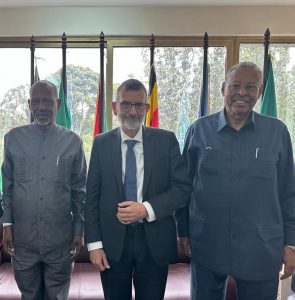The solution to climate change is not setting net zero carbon emissions targets as dozens of nations have done, India’s federal environment minister said.
Instead, rich countries need to acknowledge their “historic responsibility” for emissions and protect the interests of developing nations and those vulnerable to climate change, said the minister, Bhupender Yadav.
Also Read: COP26: Queen Elizabeth to give UN Climate conference a skip
India — the third largest emitter of greenhouse gases after China and the United States — is committed to “being part of the solution” at the upcoming United Nations climate summit in Glasgow, Yadav said.
India is among the few countries on course to reach its targets for curbing the release of planet-warming gases. But a U.N.-backed report published Tuesday said the country had “significant room” for more ambitious goals, which it has yet to provide to the U.N. climate agency.
Asked about newer targets, Rameshwar Prasad Gupta, India’s top environmental official, said that “all options were still on the table.”
Also Read: UN’s new speaker is a dinosaur. He knows ‘a thing or two about extinction’
Indian Prime Minister Narendra Modi will be attending a Group of 20 summit scheduled for this weekend in Rome, then the summit at Glasgow, known as COP26.
Yadav stressed that India had reached its climate targets without the promised financing from rich nations. The cost of meeting the targets is estimated to be $2.5 trillion, a 2019 finance ministry document said.
Although India is now a top emitter of greenhouse gases, it has historically contributed only 4% of total emissions since the 1850s.
Also Read: ‘Leadership gap’ undermines global climate efforts, says UN chief
Gupta said that “net zero in itself isn’t a solution,” since cumulative emissions were the cause of the climate problem. He said countries need to focus on how much carbon is put in the atmosphere while getting to that goal.
Developing nations need space to grow and assistance — and without it, they are faced with a choice of compromising on development or relying on dirty fuels, he said.
But India’s dependence on coal — it’s the world’s second-largest user of the fossil fuel and has vast reserves — is likely to continue.
Electricity demand is expected to soar — and while the overall share of energy from coal will keep coming down, Gupta said weaning the country off coal at this point would impact its energy security.






